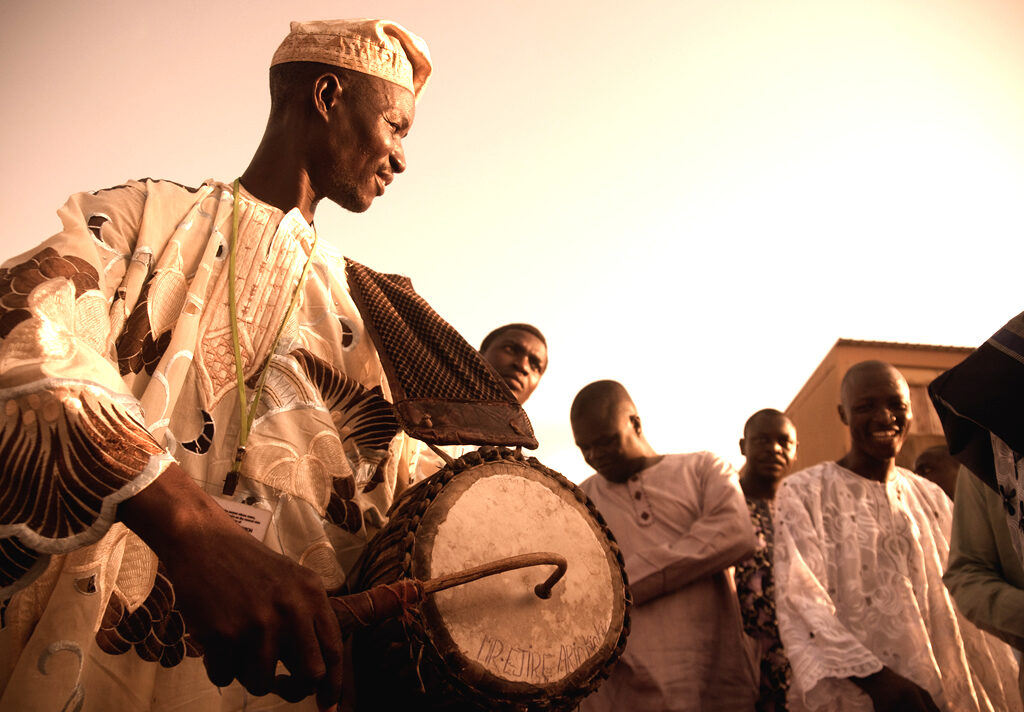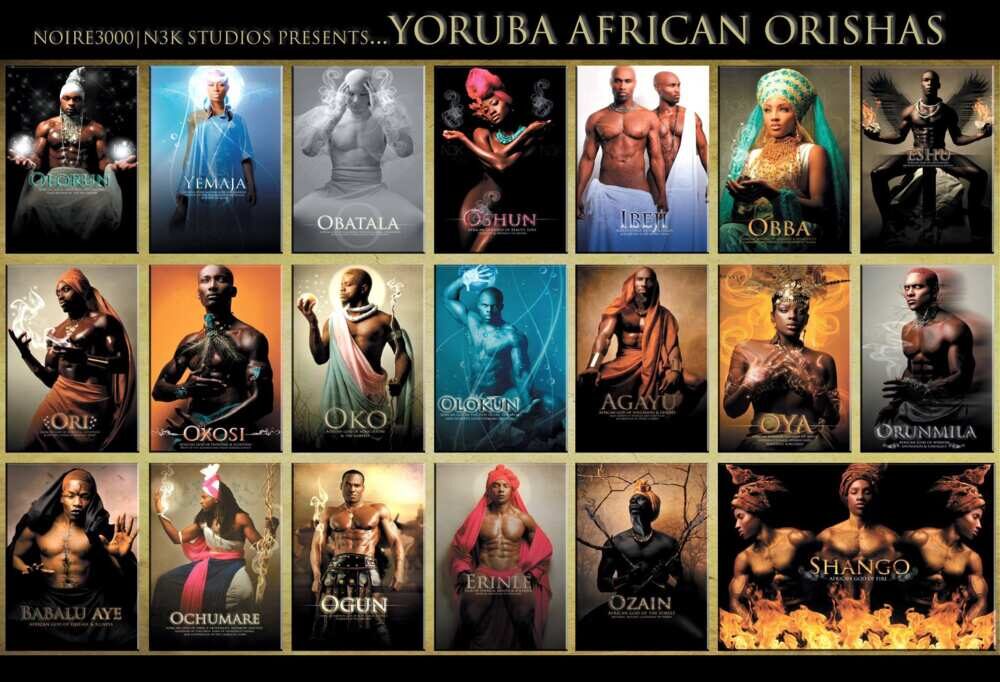The Yoruba people, a vibrant ethnic group numbering over 80 million, boast a rich and storied history that stretches back millennia. Imagine a tapestry, intricately woven with threads of complex social structures, artistic brilliance, and unwavering resilience. This tapestry, my friends, represents the Yoruba legacy, a testament to a people who continue to shape the cultural landscape of Africa, and indeed, the world.

Unveiling the Cradle of Yoruba Civilization: Ile-Ife
Our journey begins in Ile-Ife, a city revered as the cradle of Yoruba civilization. Archaeological whispers suggest settlements as early as the 1st millennium BC, hinting at the deep roots of this culture. Ile-Ife is not just a place; it’s a concept, a spiritual wellspring from which Yoruba mythology and traditions flow. Think of it as the Jerusalem or Mecca of the Yoruba world, a place of pilgrimage and profound reverence.
Rise of City-States: A Kaleidoscope of Kingdoms
As the winds of time swept through the region, powerful city-states emerged, each with its own unique identity. Oyo, with its formidable cavalry, rose to become a dominant force, establishing a vast trade network that stretched across West Africa. Imagine a web of commerce, with kola nuts, textiles, and even slaves exchanging hands, a testament to the bustling economic engine of the Oyo Empire. Meanwhile, city-states like Ife and Benin flourished, renowned for their exquisite art forms, particularly the breathtaking bronze sculptures that continue to captivate art enthusiasts today.
The Artistic Brilliance of the Yoruba People
Speaking of art, the Yoruba people were, and still are, artistic masters. Their famed bronze sculptures, often depicting deities and rulers, are a marvel of lost-wax casting, a technique that allowed for intricate details and lifelike representations. Think of these sculptures not just as art objects, but as windows into the Yoruba worldview, capturing their reverence for the divine and their appreciation for human form. Furthermore, their mastery extended to textiles, with vibrant adire cloth, adorned with geometric patterns and symbolic messages, becoming a hallmark of Yoruba culture.
The Fabric of Yoruba Society: Complex and Enduring
Yoruba society was, and remains, a complex tapestry woven with various threads. The concept of “Oba,” a hereditary king, held immense power, yet was often balanced by powerful chiefs and councils. Women, particularly market women known as “Iya Oja,” played a crucial role in the economic sphere, wielding significant influence. Imagine a marketplace buzzing with activity, where women not only sell goods but also serve as social commentators and wield economic clout. The social structure also emphasized the importance of age groups and secret societies, fostering a sense of community and shared values.
Yoruba Religion: A Pantheon of Powerful Deities
The Yoruba religion is a fascinating blend of ancestral reverence and a rich pantheon of deities, each with their own domain and personality. Oshun, the goddess of love and beauty, Shango, the god of thunder, and Obatala, the creator god, are just a few examples. These deities continue to be worshipped in vibrant ceremonies, with traditional drumming, song, and dance playing a central role. Think of a religious experience that’s not just about contemplation, but a full-body immersion in rhythm and movement, a celebration of the divine that engages all senses.

The Scars of the Slave Trade: A Legacy of Resilience
A dark chapter in Yorubaland history is the transatlantic slave trade. Millions of Yoruba people were captured and forcibly transported to the Americas, leaving an indelible mark on their collective memory. Yet, even in the face of unimaginable hardship, their spirit endured. They carried their traditions, language, and religion across the Atlantic, influencing cultures in the Caribbean and the Americas, a testament to their enduring strength.
The 19th Century: A Period of Upheaval
The 19th century brought further upheaval. The Oyo Empire’s decline led to a period of warfare and instability. New power dynamics emerged, with the rise of cities like Ibadan. Imagine a once-mighty empire fractured, with new forces vying for dominance, a period of uncertainty and struggle.
The Dawn of Colonialism: A New Era of Challenges
The arrival of European powers in the late 19th century ushered in the era of colonialism. The British eventually established control over Yorubaland, a period marked by cultural suppression and economic exploitation. Think of a forceful imposition of foreign rule, a time when traditions were challenged, and resources were extracted for the benefit of a distant empire.
The Road to Independence and Beyond: A Legacy that Endures
The 20th century saw the struggle for independence, Nigeria, a nation encompassing a rich tapestry of ethnicities, gained independence in 1960. The Yoruba people played a significant role in the independence movement, their leadership and intellectual prowess instrumental in shaping the new nation.
While Nigeria has faced its share of challenges since independence, the Yoruba spirit of resilience continues to shine through. Their entrepreneurial spirit fuels the national economy, and their rich cultural heritage remains a source of national pride. Today, Yoruba communities can be found not just in Nigeria but across the globe, a testament to their diaspora and enduring influence.
The Diaspora and Its Global Impact
The forced migration of Yoruba people during the slave trade had a profound impact on the world. Their cultural practices, particularly their religion, music, and language, left an indelible mark on societies in the Americas. From the vibrant Santeria tradition in Cuba to the powerful Candomblé religion in Brazil, Yoruba influences continue to be felt today. Think of a legacy that transcends geographical boundaries, a cultural echo that resonates across continents, a testament to the enduring strength of Yoruba traditions.
The Enduring Allure of Yoruba Culture
There’s something undeniably captivating about Yoruba culture. Perhaps it’s the vibrant art forms, the rich mythology, or the infectious rhythms of their music. Maybe it’s the enduring strength of their social structures or the unwavering faith in their deities. Whatever the reason, Yoruba culture continues to fascinate scholars, artists, and travelers alike.
Contemporary Expressions of Yoruba Culture
The Yoruba legacy is not a relic of the past; it’s a vibrant force that continues to evolve. Modern Yorubaland artists are reinterpreting traditional forms, creating new narratives that resonate with contemporary audiences. Fashion designers are incorporating adire cloth into their creations, while musicians are weaving Yoruba rhythms into contemporary music genres. Think of a culture that’s not just static but dynamic, adapting to the times while staying true to its roots.
Conclusion: A Legacy Woven in Time
The Yoruba people’s story is one of remarkable resilience, artistic brilliance, and unwavering faith. From the ancient city of Ife to the bustling streets of Lagos, their legacy is woven into the fabric of time. As we delve deeper into their history, we gain a profound appreciation for the enduring strength of the human spirit and the power of culture to transcend generations. The Yorubaland tapestry continues to be woven, its vibrant threads promising to enthrall and inspire for generations to come.

Read Also
Here are 5 FAQs about the Yoruba People:
1. What is the origin of the Yoruba people?
The exact origins of the Yoruba people are shrouded in some mystery. However, archaeological evidence suggests settlements in Yorubaland dating back to the 1st millennium BC. Oral traditions point to Ile-Ife as the cradle of Yoruba civilization.
2. What are some of the most famous Yorubaland kingdoms?
The Oyo Empire, renowned for its cavalry and vast trade network, was a dominant force in West Africa. Other notable kingdoms include Ife, the center of Yoruba artistic expression, and Benin, famous for its exquisite bronze sculptures.
3. What is the significance of Yoruba religion?
The Yoruba religion is a complex system of belief with a rich pantheon of deities. It emphasizes ancestral reverence and continues to be practiced vibrantly today, with drumming, singing, and dancing playing a central role in ceremonies.
4. How did the slave trade impact the Yorubaland people?
The transatlantic slave trade was a dark chapter in Yoruba history. Millions were captured and transported to the Americas. However, the Yorubaland spirit endured, and their cultural influence can be felt in various regions across the Americas today.
5. What is the role of the Yoruba people in modern Nigeria?
The Yoruba people are a significant ethnic group in Nigeria, playing a vital role in the country’s economy, politics, and cultural landscape. Their entrepreneurial spirit and rich cultural heritage continue to shape the nation.

